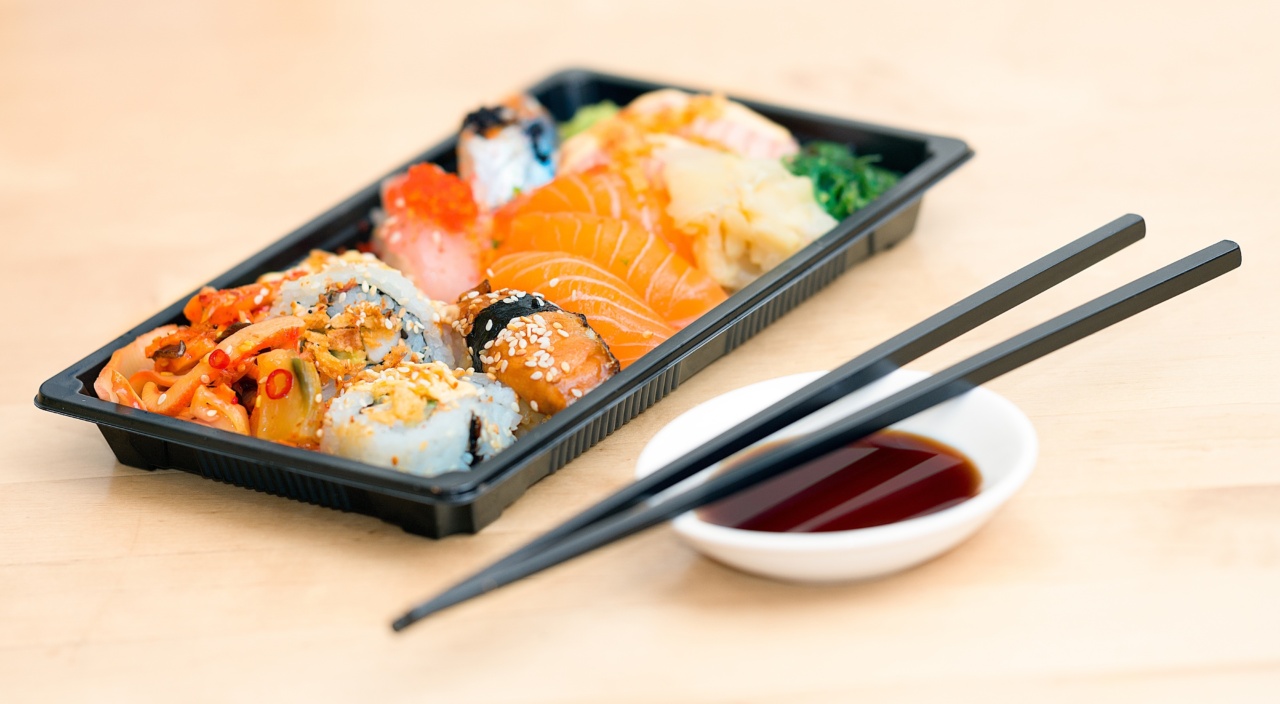Seafood is not only delicious but also offers numerous health benefits. It is known as the ultimate nutritional powerhouse due to its rich content of essential nutrients such as omega-3 fatty acids, high-quality protein, vitamins, and minerals.
Incorporating seafood into your diet can have a profound impact on your overall health and well-being. In this article, we will explore the many reasons why seafood deserves its reputation as a nutritional powerhouse.
Omega-3 Fatty Acids: The Key to Good Health
One of the primary reasons why seafood is considered a nutritional powerhouse is its abundant supply of omega-3 fatty acids. These essential fats play a crucial role in maintaining heart health, brain function, and reducing inflammation in the body.
Omega-3 fatty acids are primarily found in fatty fish such as salmon, tuna, mackerel, and sardines.
High-Quality Protein for Muscle Development
Seafood is an excellent source of high-quality protein, which is essential for muscle development, repair, and growth. Unlike many other animal protein sources, seafood is low in saturated fat.
This makes it a healthier option for individuals looking to build muscle or maintain a healthy body weight.
Rich in Essential Vitamins and Minerals
In addition to omega-3 fatty acids and protein, seafood is packed with essential vitamins and minerals. Some varieties of seafood are particularly rich in vitamin A, vitamin D, vitamin B12, iodine, zinc, and selenium.
These nutrients play vital roles in various bodily functions, including immune system support, bone health, and thyroid function.
Boost Brain Health and Cognitive Function
Research suggests that consuming seafood regularly can help enhance brain health and cognitive function.
The omega-3 fatty acids found in seafood are associated with a lower risk of cognitive decline, improved memory, and a reduced likelihood of developing Alzheimer’s disease or other age-related cognitive disorders.
Promote Heart Health and Reduce the Risk of Chronic Diseases
Regular consumption of seafood has been linked to a reduced risk of heart disease and other chronic conditions.
Omega-3 fatty acids help lower triglyceride levels, reduce blood pressure, decrease inflammation in blood vessels, and improve overall heart health. Including seafood in your diet may contribute to a healthier heart and a decreased risk of cardiovascular diseases.
Support Eye Health and Prevent Vision Problems
Seafood, especially fatty fish like salmon and tuna, is rich in omega-3 fatty acids and antioxidants that support eye health. These nutrients help protect against age-related macular degeneration (AMD), a leading cause of vision loss in older adults.
Regular consumption of seafood can help maintain good vision and prevent various eye problems.
Enhance Skin Health and Complexion
The omega-3 fatty acids found in seafood have been shown to nourish the skin and improve its overall health and appearance. These fats help keep the skin moisturized, reduce inflammation, prevent acne breakouts, and promote a youthful complexion.
Including seafood in your diet can contribute to healthy, glowing skin.
Choose Sustainable Seafood
While seafood offers incredible health benefits, it is essential to choose sustainable options to protect the environment and maintain fish populations.
Look for eco-friendly certifications when purchasing seafood and opt for responsibly sourced varieties. Sustainable fishing practices help preserve the delicate balance of marine ecosystems and ensure a continuous supply of seafood for future generations.
Delicious Seafood Recipes
Now that you understand the incredible nutritional benefits of seafood, here are a few delicious recipes to incorporate into your meal plan:.
1. Grilled Lemon Garlic Salmon
Ingredients:.
- 4 salmon fillets
- 2 tablespoons olive oil
- 4 cloves of garlic, minced
- Juice of 1 lemon
- Salt and black pepper to taste
Instructions:.
- Preheat the grill to medium-high heat.
- In a small bowl, mix together the olive oil, minced garlic, lemon juice, salt, and black pepper.
- Brush the marinade onto the salmon fillets, coating them evenly.
- Grill the salmon for about 4-5 minutes per side, or until cooked through.
- Serve hot and enjoy!
2. Spicy Garlic Shrimp Pasta
Ingredients:.
- 1 pound shrimp, peeled and deveined
- 8 ounces linguine pasta
- 4 cloves of garlic, minced
- 2 tablespoons olive oil
- 1 teaspoon red pepper flakes (adjust to taste)
- 1/2 cup cherry tomatoes, halved
- Salt and black pepper to taste
- Fresh parsley for garnish
Instructions:.
- Cook the linguine pasta according to package instructions, then set aside.
- In a large skillet, heat the olive oil over medium heat.
- Add the minced garlic and red pepper flakes to the skillet and sauté for 1-2 minutes until fragrant.
- Add the shrimp to the skillet and cook until pink and opaque, about 3-4 minutes.
- Add the cherry tomatoes and cooked linguine pasta to the skillet, tossing well to combine.
- Season with salt and black pepper to taste.
- Garnish with fresh parsley and serve hot.
Conclusion
Seafood truly deserves its reputation as the ultimate nutritional powerhouse. From omega-3 fatty acids and high-quality protein to essential vitamins and minerals, seafood offers a wide range of health benefits.
Regular consumption of seafood can improve heart health, brain function, skin health, and contribute to the prevention of chronic diseases. It’s important to choose sustainable seafood options to protect the environment and future fish populations. So, make seafood a regular part of your diet and enjoy its delicious taste and incredible health benefits!.































